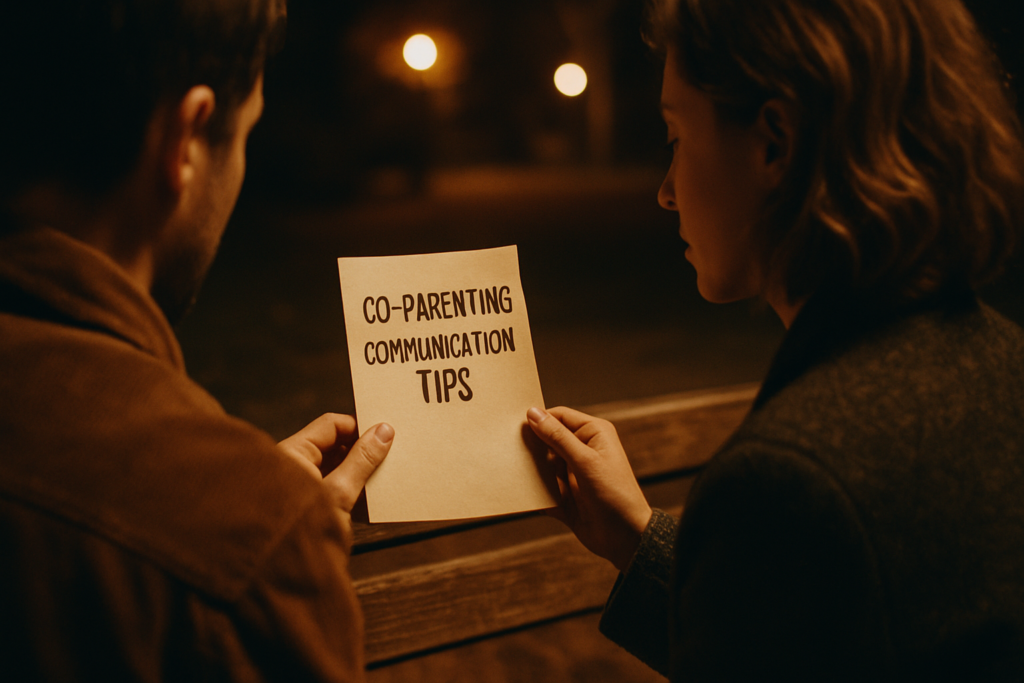Navigating co-parenting communication can be a challenging yet crucial aspect of successful co-parenting. In my years of experience, I’ve learned that effective communication between co-parents lays the foundation for a harmonious and supportive co-parenting relationship.
Understanding the do’s and don’ts in co-parenting communication is key to fostering a healthy environment for children to thrive. When it comes to co-parenting, clear and respectful communication is essential.
By following best practices and avoiding common pitfalls, co-parents can build trust, reduce conflicts, and prioritize the well-being of their children. In this article, I’ll share valuable insights and practical tips to help co-parents enhance their communication skills and create a positive co-parenting dynamic.
Importance of Effective Co-Parenting Communication
Effective co-parenting communication is the cornerstone of a successful co-parenting relationship. It forms a solid foundation for constructive interactions between co-parents, essential for the well-being of their children.
When co-parents communicate effectively, they can navigate challenges, make joint decisions, and provide consistency in parenting styles. A clear line of communication ensures that both parents are informed about important matters concerning their children, such as health issues, academic progress, and emotional well-being.
By sharing relevant information openly and transparently, co-parents can work together to address any concerns promptly and collaboratively. This fosters a sense of partnership and unity in co-parenting.
Moreover, effective communication helps prevent misunderstandings and minimizes conflicts between co-parents. By practicing active listening, showing empathy, and maintaining a respectful tone, co-parents can avoid unnecessary arguments and disagreements.
Clear communication also reduces the chances of misinterpretation and ensures that both parties are on the same page regarding parenting decisions. In essence, the importance of effective co-parenting communication cannot be overstated.
It lays the groundwork for a positive co-parenting dynamic, promotes cooperation and mutual respect, and ultimately benefits the well-being of the children involved. By prioritizing open, honest, and respectful communication, co-parents can create a supportive environment where their children can thrive.
Setting the Foundation for Successful Communication
To ensure successful communication in co-parenting, I’ll delve into essential aspects such as establishing clear boundaries and creating a consistent communication plan.
Establishing Clear Boundaries
In co-parenting, setting clear boundaries is crucial for maintaining a healthy relationship. It’s vital to define roles, responsibilities, and expectations with your co-parent. By clearly outlining boundaries regarding decision-making, parenting styles, and communication frequency, both parties can navigate co-parenting more effectively.
Establishing boundaries helps avoid misunderstandings and conflicts, promoting a balanced and harmonious co-parenting dynamic.
Creating a Consistent Communication Plan
Consistency is key in co-parenting communication. Designing a structured communication plan lays the groundwork for regular and reliable interactions. Determine the preferred communication channels, whether it’s through texts, emails, phone calls, or co-parenting apps.
Agree on how often you’ll communicate, what type of information to share, and how to handle urgent situations. By adhering to a consistent communication plan, co-parents can streamline their interactions, enhance efficiency, and demonstrate a united front for the well-being of their children.
The Do’s of Co-Parenting Communication
- Prioritize clear and respectful communication: ensuring that all discussions remain child-focused and free from personal conflicts.
- Establish consistent communication channels: such as scheduled check-ins or a shared parenting app, to streamline important conversations and updates.
Actively Listening to Each Other
In co-parenting communication, actively listening to each other is key. It involves giving full attention to the speaker, acknowledging their perspective, and responding thoughtfully. By practicing active listening, co-parents demonstrate respect, understanding, and a willingness to engage collaboratively.
This fosters mutual trust and enables effective problem-solving for the benefit of the children.
Using Neutral Language
Using neutral language in co-parenting conversations helps maintain a balanced and non-confrontational atmosphere. By avoiding emotionally charged or accusatory language, co-parents can prevent misunderstandings and conflicts.
Neutral language focuses on facts, concerns, and constructive feedback, fostering a harmonious and respectful communication environment that centers on addressing issues constructively.
Being Respectful and Empathetic
Respect and empathy are fundamental pillars of successful co-parenting communication. By treating each other with respect, acknowledging boundaries, and valuing diverse viewpoints, co-parents can nurture a supportive and understanding relationship.
Empathy plays a crucial role in recognizing each other’s emotions, perspectives, and challenges, fostering compassion and cooperation. With respect and empathy as guiding principles, co-parents can navigate communication challenges effectively and prioritize the well-being of their children.
The Don’ts of Co-Parenting Communication
When co-parenting, it’s crucial to steer clear of certain communication pitfalls to maintain a healthy relationship. Here are the key practices to avoid:
Avoiding Blaming or Criticizing
In co-parenting communication, refraining from blaming or criticizing the other parent is essential. Instead of pointing fingers, focus on discussing issues objectively and finding solutions collaboratively.
Blaming and criticizing can escalate conflicts and hinder effective co-parenting.
Refraining from Negative Communication Channels
It’s imperative to avoid using negative communication channels when interacting with your co-parent. Refrain from engaging in hostile or confrontational communication, such as using disrespectful language, sarcasm, or aggression.
Opt for constructive and respectful dialogue to promote a positive co-parenting environment.
Implementing Best Practices for Effective Co-Parenting Communication
Incorporating and following best practices for effective co-parenting communication is crucial for maintaining a healthy and supportive environment for children. As a seasoned professional in the field, I can attest to the significance of implementing strategies that promote successful co-parenting interactions.
By adhering to these best practices, co-parents can enhance communication, minimize conflicts, and prioritize the well-being of their children. One essential best practice is active listening, where each co-parent attentively listens to the other without interrupting.
This practice fosters understanding, empathy, and mutual respect, leading to more productive conversations and improved conflict resolution. By actively listening, co-parents can validate each other’s perspectives and demonstrate a willingness to collaborate for the benefit of their children.
Another key best practice is using neutral language when communicating. By avoiding accusatory or inflammatory language, co-parents can maintain a calm and rational tone in their interactions. Neutral language helps prevent misunderstandings, defuse potential conflicts, and promote a constructive dialogue focused on finding solutions rather than assigning blame.
This approach creates a more harmonious co-parenting environment where both parties feel heard and respected. Furthermore, maintaining a respectful and empathetic attitude is paramount in effective co-parenting communication. Showing respect for the other co-parent’s opinions, decisions, and boundaries fosters a sense of cooperation and partnership.
Empathy allows co-parents to understand each other’s feelings and perspectives, leading to more compassionate and supportive interactions. By approaching communication with respect and empathy, co-parents can build trust, strengthen their relationship, and provide a stable and nurturing environment for their children.
By implementing these best practices for effective co-parenting communication, co-parents can navigate their relationship with more ease and transparency. Active listening, neutral language, and respect are pillars that support constructive interactions, minimize conflicts, and promote collaboration in decision-making.
As I have seen in my experience, prioritizing these best practices can lead to a smoother co-parenting dynamic and ultimately benefit the emotional well-being of the children involved.




